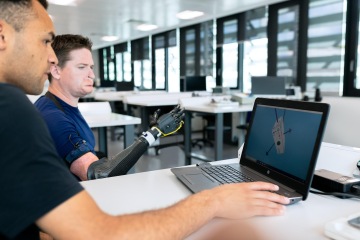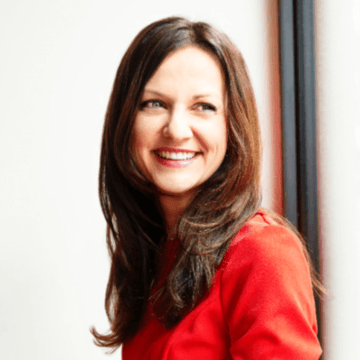Diversity, inclusion and social responsibility are not just empty phrases

Employees are any company's most important resource. A well-functioning team that can come up with innovative ideas and put them into practice is priceless. In the past, however, it was common for creativity, intelligence, and perseverance to be outweighed by other aspects. But today, the interest of companies in employing individuals across all groups is growing appreciably.

Inclusion and diversity
Expressions such as inclusion, diversity and social responsibility are derived from this. In the Czech Republic and worldwide, it is no longer just about trendy words to spruce up a company's LinkedIn profile. See what the effort to integrate the widest possible range of human experience into corporate culture looks like in practice
What do diversity and inclusion bring?
According to a number of studies, the diversity of work teams has a positive impact on the company's productivity. If a company is full of people with the same way of thinking and life experiences, it can very easily stagnate. A plurality of opinions prevents groupthink, which can lead to bad decisions.
A diversified team is more flexible and better ready to adapt to changing conditions in the business world. A company is considered inclusive if it actively supports diversity and allows its employees to function without having to hide part of their identity. Inclusion is
a huge advantage in terms of recruitment, because greater freedom in the workplace attracts many promising employees.

Identity building
Diversity and inclusion cannot be underestimated in terms of building brand awareness either. Social responsibility
is valued not only by employees but also by potential customers. By resisting an inclusive approach to work,
a company can deprive itself of both new talent and potential profits.
One of the leading experts on diversity and inclusion in the Czech Republic is Jana Tikalová, the founder of the OPIM z.s. organization, where she has been actively focusing on this issue for 20 years. Among other things, she works together with the Council of Europe and other international companies.
This is what she has to say about why diversity and inclusion are important:

Skills remain, what's important is mutual understanding
People whose lives have been affected by illness or injury still want to work. In most cases, the health problem does not take away their ability. In some cases, they might no longer be able to work full-time, for example, or cannot regularly work overtime hours.
Trust pays off
Sometimes, due to their disability, they need to adjust their workspace and conditions. The coronavirus period has brought to light something that has been true in the world of responsible employment for a long time: trust pays off, the opportunity to work part-time from home (if the job allows), the use of modern technologies. All this makes professional life much easier for people with disabilities. But people with disabilities certainly do not want to be defined by their handicap or state of health. If the company can ensure the right conditions for work, everyone can find a place where they can fulfil their potential.

Adaptation
If the company has decided that it is primarily interested in motivated employees and wants to employ people regardless of health challenges, it can address many issues with an architect when building the company premises. This means, for example, adapting workspaces and relaxation zones so that people with physical disabilities can move around them without difficulty.
Handicap may not be visible
Besides wheelchair users, there also may be colleagues with reduced mobility. For example, people with cerebral palsy, multiple sclerosis and the like. But disability is not synonymous only with limitations associated with the musculoskeletal system. Offices can also be adapted for visual, hearing and other sensory disorders. And let's not forget so-called invisible disabilities. These include, for example, Crohn's disease, chronic back pain, celiac disease, asthma, migraines, or conditions following cancer treatment. Companies are paying attention to the mental well-being of their teams, and so it is appropriate to think about maintaining a pleasant working environment for everyone.

Relatively little
is enough
Hana Potměšilová, chairwoman of the board of directors of the non-profit organization Revenium, has almost 20 years of experience designing inclusive workplaces. Throughout this time, she has been promoting the idea in society that people with disabilities want to and can work. Often relatively little is enough. Revenium itself employs 50 people with various disabilities or disadvantages in various locations in the Czech Republic, but Potměšilová has also designed offices for Kaufland, the working environment of the Prague branch of Revenia, and the Naturpark12 speciality coffee roasting plant project in the Kokořínsko region.
The path to inclusion and diversification
We already know why diversity and inclusion are valuable and who it affects. But what steps can a company take if it wants to have a more diversified and satisfied team?
- It all starts by incorporating these values into the corporate culture, especially from the point of view of HR.
- It has to start from the top down, i.e. from the company's management. Lead by example and emphasize diversity and inclusion in your communication with employees.
- Space for full expression of one's identity can be offered to employees as part of teambuilding activities.
- Don't be afraid to invite non-profit organizations that organize workshops and lectures in companies focused on getting to know each other's different identities.
- Prioritize inclusive elements in workplace design.
- Take advantage of the possibility of blind recruitment. It is an objective way to find new employees without the influence of any (often implicit) prejudices.

Involvement of employees in
non-profit activities
An excellent way to increase employees' awareness of other human experiences is the active participation of the company in non-profit projects. From a marketing point of view, of course, we cannot ignore the fact that this is also excellent PR. So, choose a project that you as a company can stand behind and support employees in getting fully involved. Again, the leadership example works best, so don't forget to involve managers in the event. CAPEXUS is part of various CSR projects, and supports foundations and activities that provide help where it is needed.

It takes time
It is not possible to suddenly bring more diversity and inclusion into the company. Such a goal requires time and effort. If you want to become a diversified and inclusive company, do not hesitate to use the services
of the above-mentioned experts, but also the CAPEXUS team, which will help you adapt your offices so that every employee feels great in them. Our projects help companies grow.
